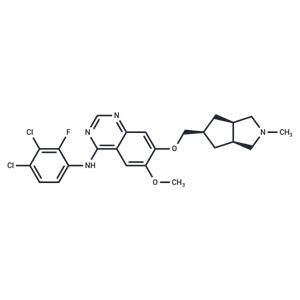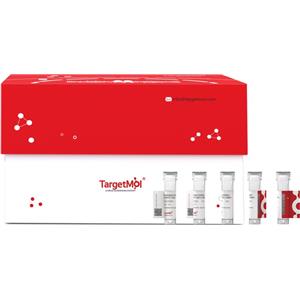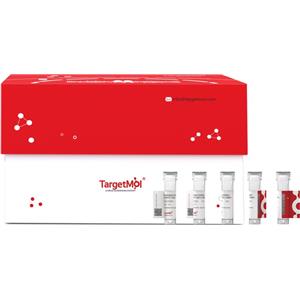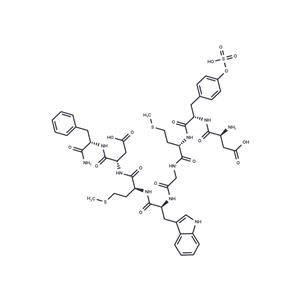| Name | Tesevatinib |
| Description | Tesevatinib (XL-647) is an oral, multi-targeted tyrosine kinase inhibitor with IC50 values ??of 0.3, 16, 1.5, 8.7, and 1.4 nM for EGFR, ErbB2, KDR, Flt4, and EphB4. |
| Cell Research | Growth inhibition of H1975 and A431 cells by increasing concentrations of Tesevatinib is determined by seeding 5000 cells per well in 96-well plates. The following day, cells are washed once with low-serum RPMI 1640 (0.1% fetal bovine serum, 1% nonessential amino acids, and 1% penicillin/streptomycin), after which 90 μL of the low-serum RPMI 1640 is added. Tesevatinib is diluted to 10 times the test concentrations and 10 μL are added to triplicate wells for a 72-h incubation. Cell viability is determined. |
| Animal Research | Tumor-bearing mice are given either Tesevatinib, erlotinib, or gefitinib at 100 mg/kg and tumors are harvested 1 to 72 h later. Half an hour before the respective time point, EGF (50 μg/mouse) is given via i.v. bolus injection with tumors dissected 30 min later and tumor extracts are prepared by homogenization in 10 volumes of ice-cold lysis buffer. Lysates are clarified by centrifugation and EGFR tyrosine phosphorylation levels are determined by ELISA. |
| In vitro | Tesevatinib (XL-647) potently inhibits the EGF/ErbB2, VEGF, and ephrin RTK families with IC50 values ??of 0.3, 16, 1.5, 8.7, and 1.4 nM for EGFR, ErbB2, KDR, and EphB4. [1] |
| In vivo | METHODS: To study the in vivo effects of Tesevatinib (XL-647) on T790M mutant EGFR, H1975 human tumor xenografts were established in female severe combined immunodeficient mice and administered Tesevatinib (XL-647) orally once daily (doses: 10, 30 and 100 mg/kg, 14 days)
RESULTS Tesevatinib (XL-647) significantly inhibited tumor growth in a dose-dependent manner, with tumor growth inhibition rates of 33%, 66% and 92% respectively.[1]
METHODS: Tesevatinib (XL-647) (7.5, 15 mg/kg, ip, daily) was treated in the well-characterized bpk mouse model of ARPKD, and efficacy and toxicity were evaluated in neonatal mice during postnatal development.
RESULTS In vivo pharmacological inhibition of multiple kinase cascades by tesevatinib (XL-647) reduced phosphorylation of key mediators of cystogenesis: EGFR, ErbB2, c-Src, and KDR; decreased kinase activity resulted in significant reductions in renal and biliary disease in both the bpk and PCK models of ARPKD. Disease amelioration by tesevatinib (XL-647) was not associated with any overt toxicity. [2] |
| Storage | Powder: -20°C for 3 years | In solvent: -80°C for 1 year | Shipping with blue ice. |
| Solubility Information | DMSO : 45 mg/mL (91.58 mM)
|
| Keywords | EXEL7647 | HER1 | XL647 | Ephrin Receptor | Inhibitor | VEGFR | Vascular endothelial growth factor receptor | KD019 | Epidermal growth factor receptor | KD 019 | EGFR | ErbB-1 | Tesevatinib | XL 647 | EXEL 7647 | inhibit |
| Inhibitors Related | Gilteritinib | Osimertinib | Sorafenib | Lapatinib | Regorafenib | Erlotinib hydrochloride | Erlotinib | Neratinib | Genistein | Gefitinib | Pazopanib | Axitinib |
| Related Compound Libraries | Bioactive Compound Library | Membrane Protein-targeted Compound Library | Tyrosine Kinase Inhibitor Library | Kinase Inhibitor Library | Anti-Cancer Clinical Compound Library | Drug Repurposing Compound Library | Inhibitor Library | Bioactive Compounds Library Max | Anti-Cancer Drug Library | Anti-Cancer Active Compound Library |








 United States
United States